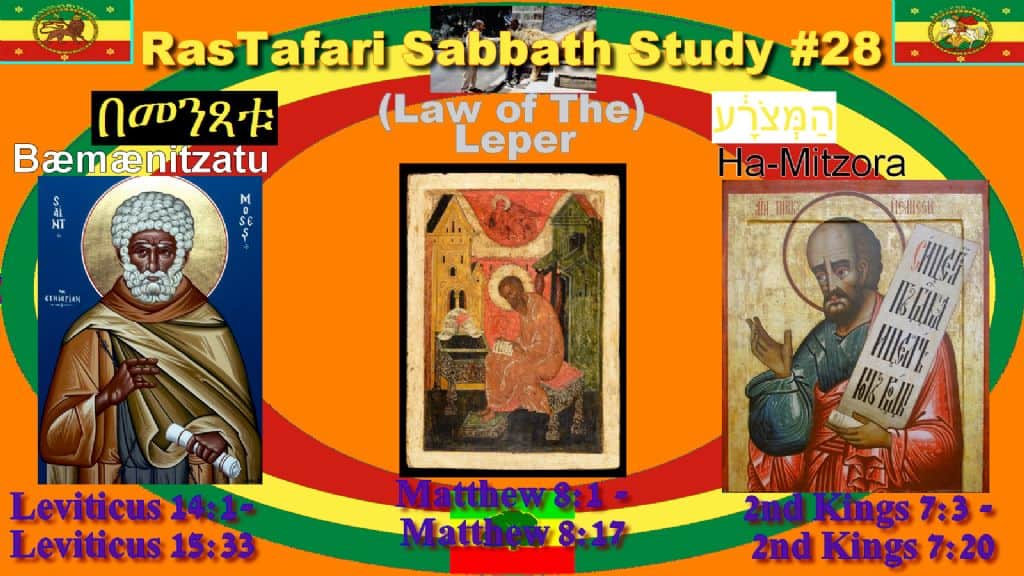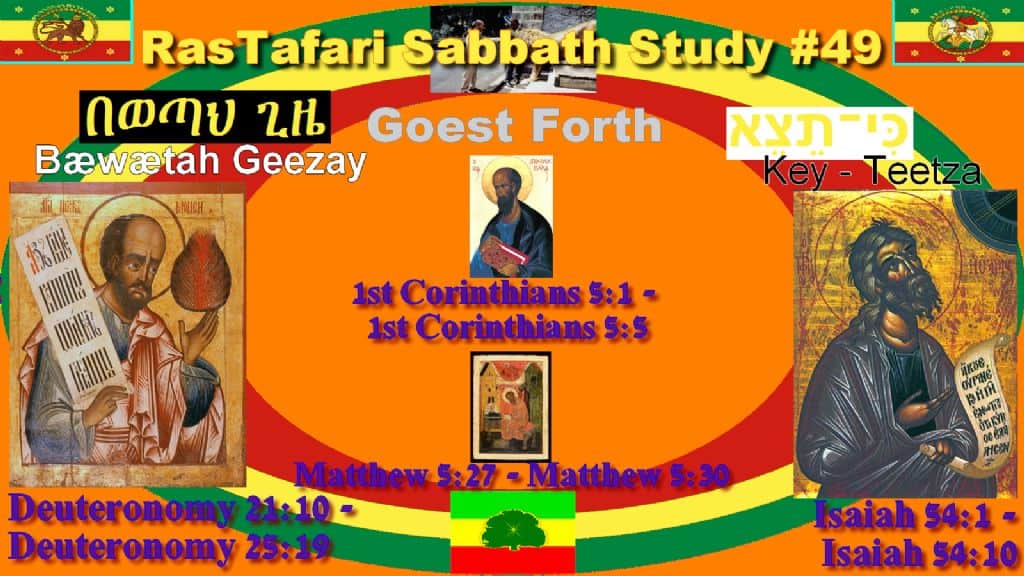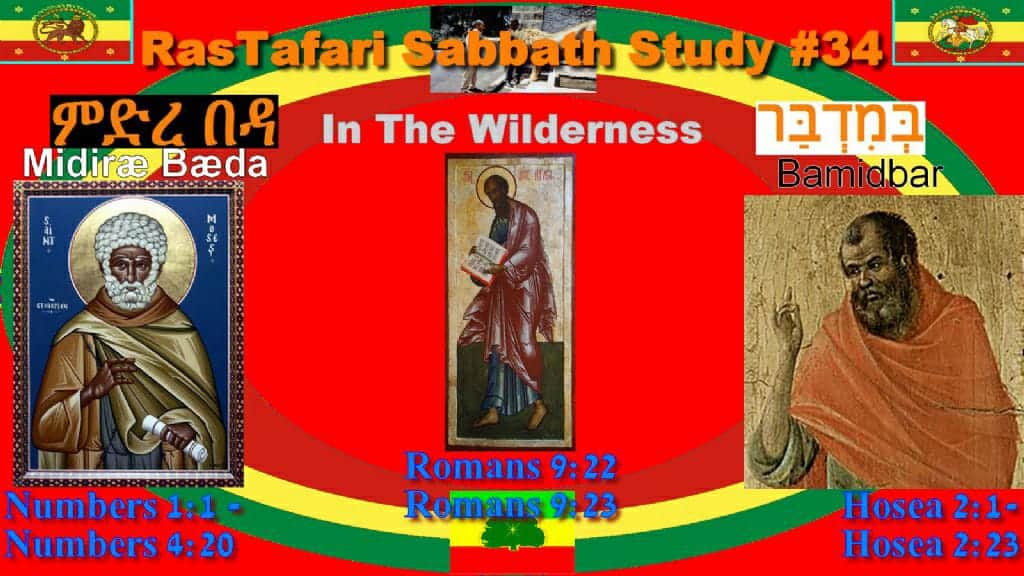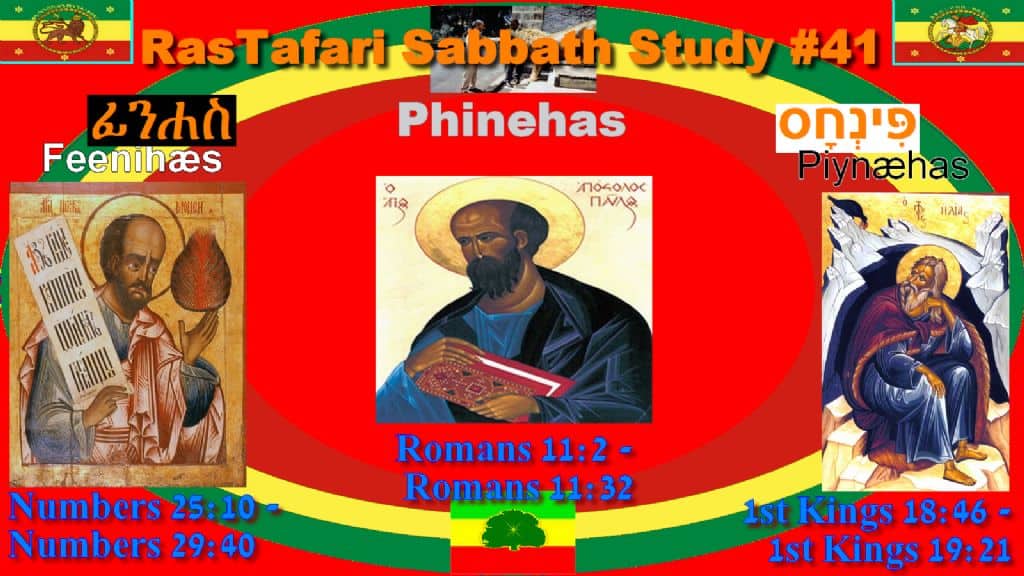This Week's Portion #27
Tazria | תזריע | "She conceives" ብታረግዝ | b’tareg’z [btaregz; bittarregiz]
*For a PDF version of All the Torah Portions Schedule, click here to download!
1. Torah Reading
2. Prophets Reading
2 Kings 4:42-5:19
3. New Testament Reading
John 6:8-13; Matthew 8:1-4
Portion Outline - TORAH
- Leviticus 12:1 | Purification of Women after Childbirth
- Leviticus 13:1 | Leprosy, Varieties and Symptoms
Portion Outline - PROPHETS
- 2 Kings 7:3 | The Arameans Flee
Portion Study Book Download & Summary
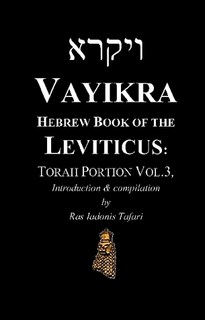 VAYIKRA Hebrew Book of Leviticus - Torah Portion Vol.3 (FREE PDF)
VAYIKRA Hebrew Book of Leviticus - Torah Portion Vol.3 (FREE PDF)
Tazria The name of the twenty-seventh reading from the Torah is Tazria (תזריע), which means “she conceived.” The name is derived from the words of Leviticus 12:2, where the LORD says to Moses, “When a woman [conceives] and bears a male child ...” Leviticus 12 discusses the laws of purification after childbirth. Leviticus 13 introduces the laws for diagnosing and quarantining lepers. Except in biblical calendar leap years, Tazria is read together with the subsequent Torah portion, Metzorah, on the same Sabbath.
Portion Commentary - Tazria
The Sin of Childbirth
Thought for the Week:
The sacrifices after childbirth remind us that the act of giving birth is itself a miraculous encounter with the Divine. It is not to be regarded as just ordinary life. Instead, the Torah grants the event sanctity and significance by requiring sacrifices. The new baby is a gift from God, and the mother naturally wants to reciprocate with a gift. She brings a burnt offering and a sin offering as her gifts to God, who blessed her with a child.
Commentary:
After the mother's days of purification were completed, she was readmitted to the Tabernacle and the sacrificial service. At that time she was required to bring a burnt offering and a sin offering to the LORD (Leviticus 12:6). The sin offering seems troubling. Did the woman sin by having a baby? On the contrary, she was fulfilling the commandment to be fruitful and multiply. Why did she need to bring a sin offering?
The Talmud explains that when a woman is in the pain of childbirth, she might inadvertently curse her husband or take a vow never to let him touch her again, and because of that, she must bring a sin offering to exonerate herself from her rash vow or her resentful thoughts. Women who have gone through the pain of childbirth may find this explanation amusing and even concur with some of the sentiments, but this is hardly a credible interpretation.
A simpler explanation is that sin offerings were often brought for purification purposes. When that happened, the sin offering was not a punishment for sin or a consequence of iniquity, it was simply part of the purification ritual. Along similar lines, a person who suffered an unnatural bodily discharge and a person being purified of leprosy also brought sin offerings.
On a mystical level, the mother's forty- or eighty-day journey through ritual unfitness is like a microcosm for her baby's own odyssey through life. Prior to having the baby, the woman was in a state of ritual fitness. She enjoyed the presence of God in His holy dwelling place and was fit to eat from His table. After childbirth there was a period of time during which she was unable to enter the dwelling place of God. At the conclusion of that time, the woman was readmitted to the Tabernacle through the atonement of a sin offering. This progression of events symbolizes the baby's own passage through life. Her soul begins in the eternal dwelling place of God, but her birth in human flesh requires a departure from that place and a sojourn outside of God's heavenly tabernacle. After an allotted period of time, though, the soul leaves the body to return to God:
Then the dust will return to the earth as it was, and the spirit will return to God who gave it. (Ecclesiastes 12:7)
Through the atonement of Messiah's timeless sin offering, the soul of the believer returns to fellowship with her source. The mother's readmission to the Tabernacle might be said to symbolize the eventual return of the new life to God.

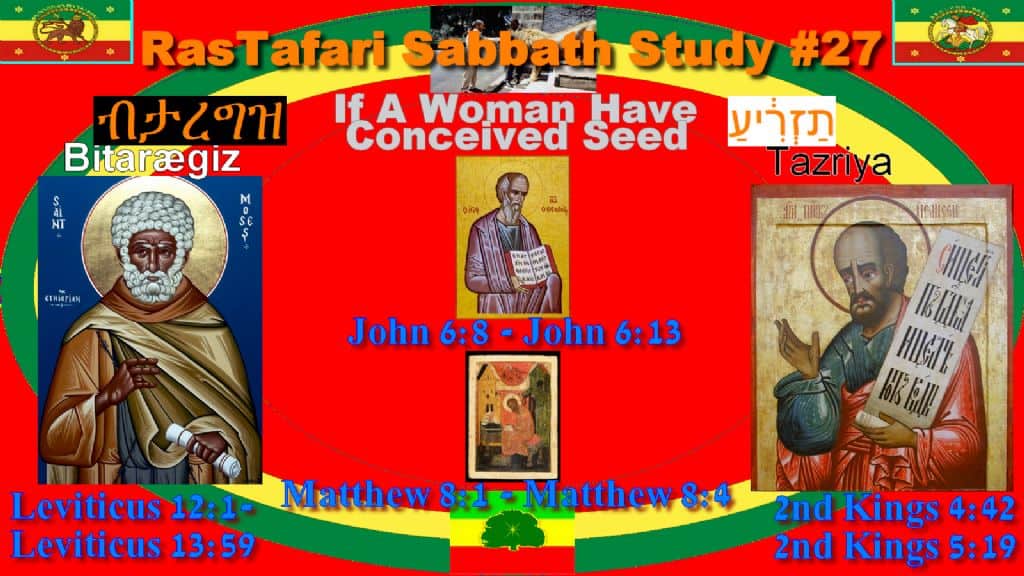
![RSS 27: Tazria | מצורע | She conceives ብታረግዝ | b’tareg’z [btaregz; bittarregiz] RSS 27: Tazria | מצורע | She conceives ብታረግዝ | b’tareg’z [btaregz; bittarregiz]](https://lojs.org/wp-content/uploads/2019/03/Discipleship-Radi0-RasTafari-Bible-Readings-27_.jpg)
![RSS 27: Tazria | מצורע | She conceives ብታረግዝ | b’tareg’z [btaregz; bittarregiz] RSS 27: Tazria | מצורע | She conceives ብታረግዝ | b’tareg’z [btaregz; bittarregiz]](https://lojs.org/wp-content/uploads/2019/03/Discipleship-Radi0-RasTafari-Bible-Readings-27_2_.jpg)
![RSS 27: Tazria | מצורע | She conceives ብታረግዝ | b’tareg’z [btaregz; bittarregiz] RSS 27: Tazria | מצורע | She conceives ብታረግዝ | b’tareg’z [btaregz; bittarregiz]](https://lojs.org/wp-content/uploads/2019/03/Discipleship-Radi0-RasTafari-Bible-Readings-27_2_1_.jpg)
![RSS 27: Tazria | מצורע | She conceives ብታረግዝ | b’tareg’z [btaregz; bittarregiz] RSS 27: Tazria | מצורע | She conceives ብታረግዝ | b’tareg’z [btaregz; bittarregiz]](https://lojs.org/wp-content/uploads/2019/03/Discipleship-Radi0-RasTafari-Bible-Readings-27_2_1.jpg)
![RSS 27: Tazria | מצורע | She conceives ብታረግዝ | b’tareg’z [btaregz; bittarregiz] RSS 27: Tazria | מצורע | She conceives ብታረግዝ | b’tareg’z [btaregz; bittarregiz]](https://lojs.org/wp-content/uploads/2019/03/Discipleship-Radi0-RasTafari-Bible-Readings-27_2.jpg)
